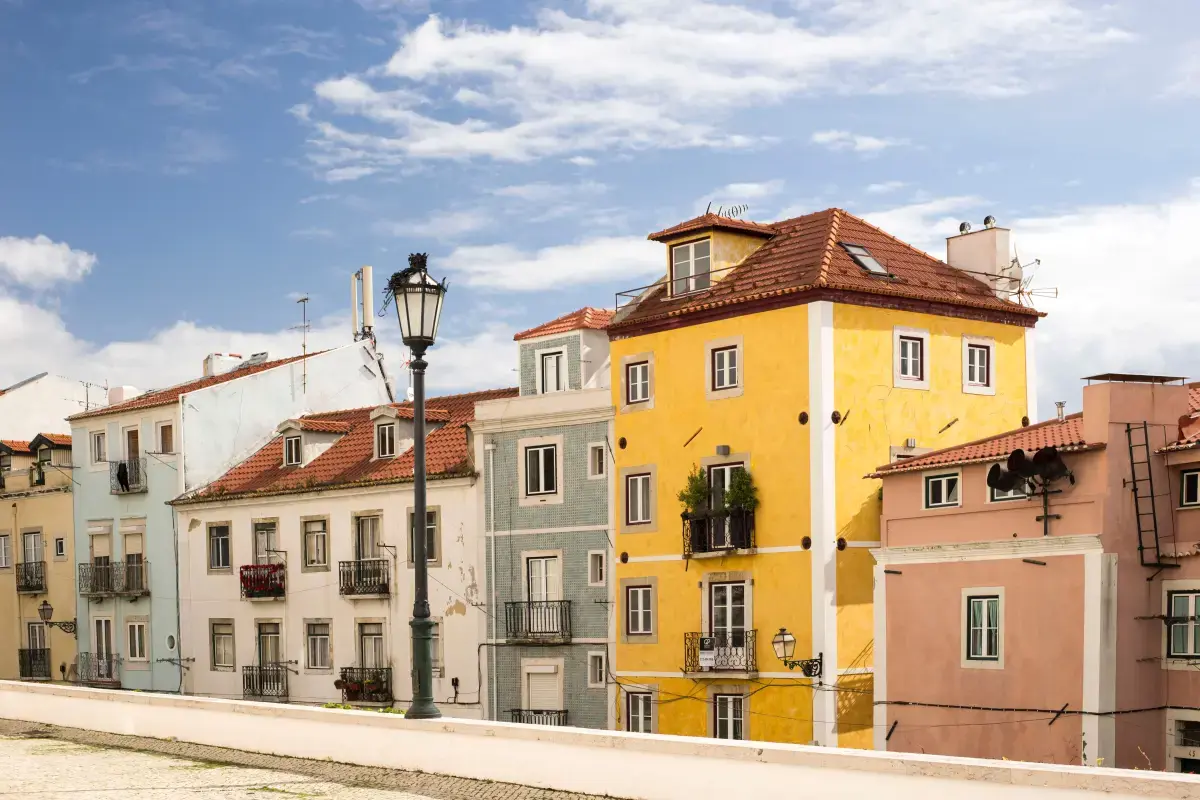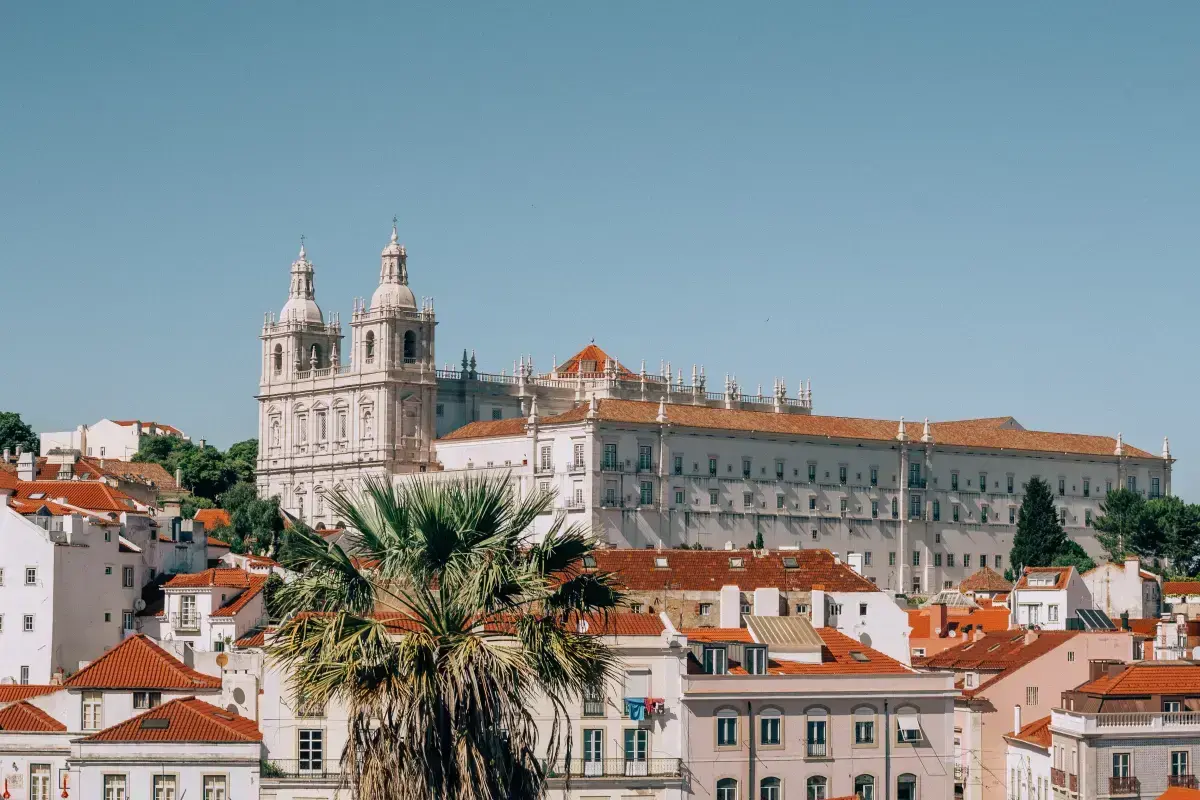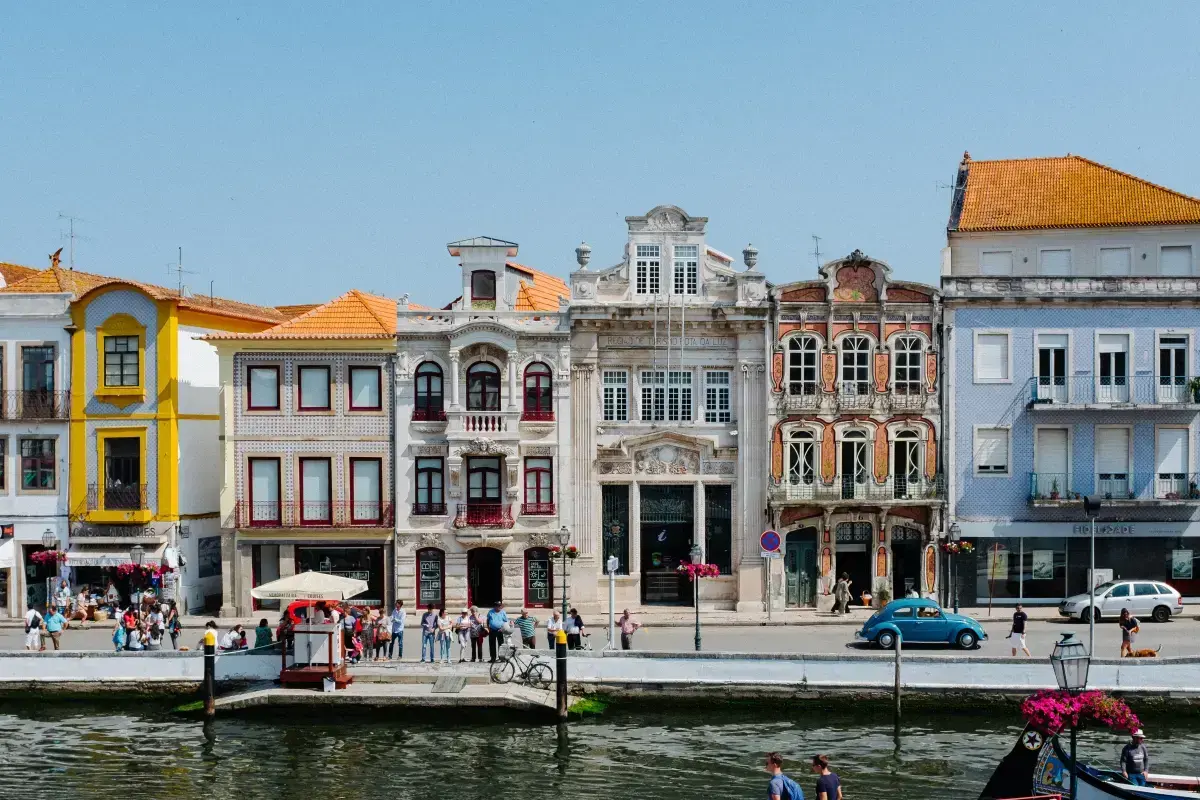- Anesthesiologist
- Obstetrician and Gynecologist
- Psychiatrists
- Surgeons
- General Internal Medicine
- Physicians
- Ophthalmologists
- Orthodontist
- Product Manager
- Artificial Intelligence & Machine Learning (AI/ML) Engineer
- Full-Stack Developer
- Cloud Architect
- DevOps Engineer
- Blockchain Engineer
- Software Architect
- Big Data Engineer
- Internet of Things (IoT) Solutions Architect
- Data Scientist
- Cyber Security Architect

Moving to Portugal in 2025
Step by step guide on migrating and relocating to Portugal in 2025?
Use our Guide to find all the moving information you may need if you are thinking of moving or working in Portugal.
People relocate and move to Portugal for a range of reasons. Portugal is renowned for its delightful climate, spectacular beaches and stunning scenery. Its cultural attractions, gastronomy, and vibrant cities add to the appeal. Additionally, Portugal has low costs of living, excellent healthcare, and a safe and secure environment. The cost of living is another major factor that typically draws people to Portugal. Rent is generally cheaper than other European capitals and the cost of basic goods is low. Property purchase is also very attractive as Portugal offers favorable tax conditions and attracts a growing number of expats who wish to purchase second homes. The potential of finding employment also draws people to Portugal. The country has a significant number of multinational companies operating out of its large cities, providing job opportunities for highly-skilled workers. Furthermore, Portugal’s location makes it an ideal hub for large businesses seeking to utilize the resources of the Eurozone. Additionally, Portugal’s relaxed lifestyle, perfect for those seeking a slow pace of living, is a major factor in drawing expats. It is renowned for its friendly people and culture, which can make adapting to life in the country much easier. Overall, Portugal’s low costs of living, strong economic environment, and its cultural attractions are all popular draws for people who are looking for a new home.

Gigs
Cost of Moving to Portugal
1. Visas and Residency: If you are not a citizen of a country within the European Union, you will need to apply for a visa and obtain a residency permit to stay in Portugal. Depending on your nationality, you may be eligible for a D7 (long-term residence permit), a D7+ (reinforced long-term residence permit), a D2 (student residence permit) or even a D1 (humanitarian residence permit). Each of these visas requires the necessary paperwork and fees, and the applicable costs vary. 2. Housing: The cost of housing in Portugal depends on the specific location and style of accommodation you choose. Rental prices, ranging from as little as €400 per month to €3,000 or more in exclusive neighborhoods, are generally lower than those found in other European countries. 3. Health Insurance: Portugal has a public healthcare system that provides free or low-cost healthcare to citizens and long-term residents. However, expatriates may prefer to purchase a private healthcare plan, as it will provide greater access to a wider range of services and treatments. Private medical insurance typically covers the same types of treatments as the public system, but at additional cost. 4. Taxes: Portugal has a progressive income tax system, meaning those who earn more pay a higher rate. Depending on your circumstances, you may need to complete a tax return if you are a resident in Portugal. Non-residents may also need to pay taxes. In addition, there are other types of taxes, such as property taxes and taxes on cars, which will all be applicable upon moving to Portugal. 5. Moving and Logistical Costs: If you are planning on moving to Portugal and bringing your belongings with you, you will need to factor in the cost of transporting your items by air, land, or sea. You may also need to pay for storage, insurance, and assistance with administrative tasks like customs clearance. 6. Living Costs: Once you have settled into life in Portugal, you will need to consider the costs associated with everyday life. This may include the cost of basics such as groceries, gas and utilities, and possibly a car or public transportation. For items such as furniture, kitchenware and electrical goods, prices in Portugal may be slightly higher than those found in other European countries.
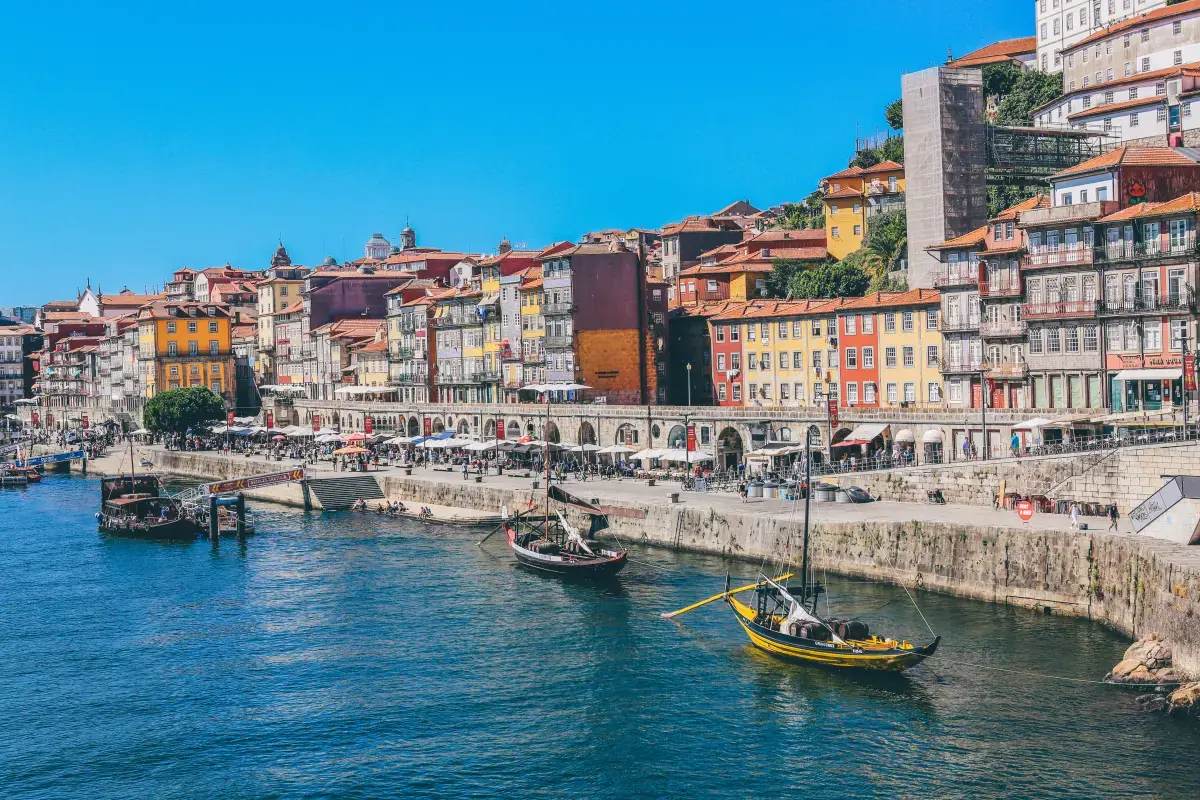
Jobs
Best Jobs in Portugal
The most popular jobs for migrants moving to Portugal are typically in the tech, hospitality, and agricultural sectors. Tech: Many migrants moving to Portugal are finding jobs in the technology sector, such as software engineers, web developers, and data analysts. Salaries in this sector are quite competitive, depending on experience and skill level. At the entry-level, software engineers can earn an average of €30,000 per year, while senior-level engineers can make €70,000 or more. Web developers can start at €25,000 and climb to over €50,000 for higher-level positions. Data analysts typically range anywhere from €26,000 to €45,000 per year. Hospitality: Portugal is a very popular tourist destination, so there are plenty of hospitality jobs available for migrants. This could include hotel staff, tour guides, restaurant staff, and more. Entry-level positions such as housekeeping and dish-washing often pay €600 to €850 per month, while more advanced positions like tour guides or supervisors usually pay €900 to €1,400 per month. Restaurant staff typically earn between €900 to €1,400 per month as well. Agriculture: Many migrants are finding jobs in Portugal’s agricultural sector, such as farming and harvesting. Salaries in this sector can vary significantly, depending on the type of work, level of experience, and whether benefits are included. Entry-level positions start at around €800 to €1,000 per month with no benefits, while more advanced positions could earn up to €2,500 per month with benefits.
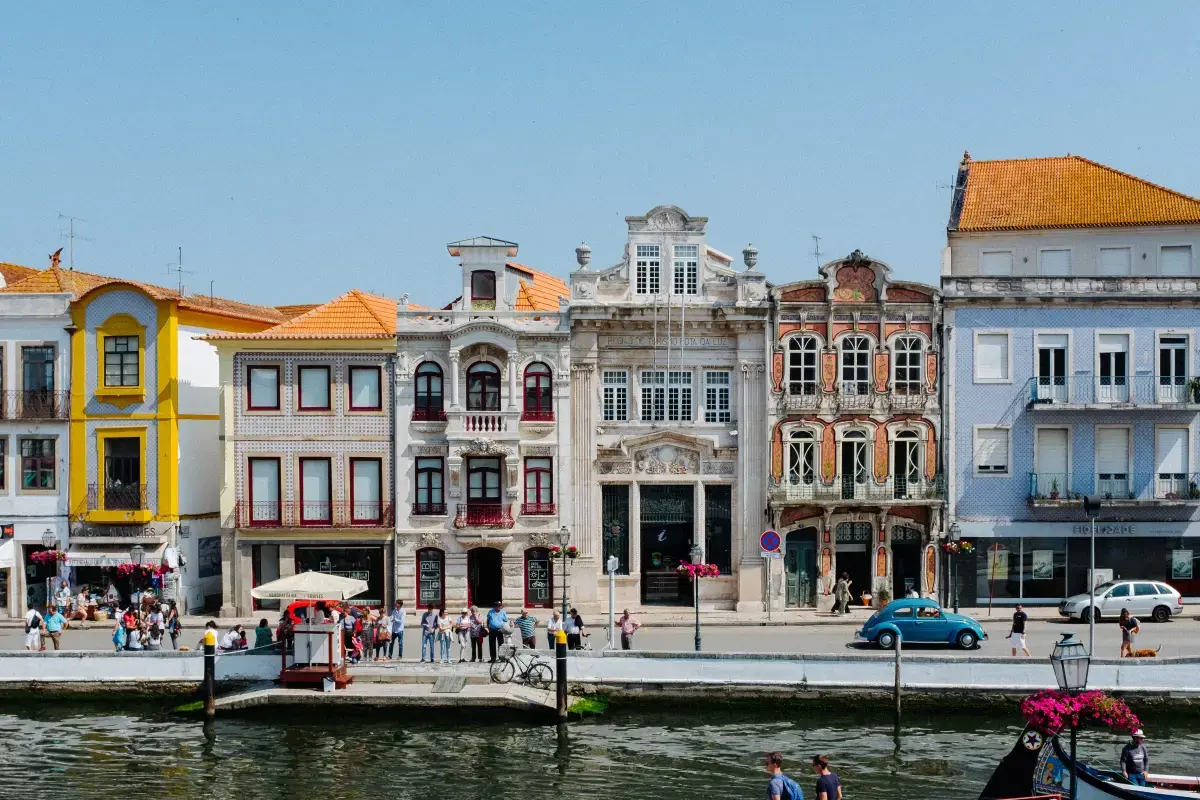
Volunteers
Weather in Portugal
The climate of Portugal is temperate and Mediterranean. It has mild winters, warm summers, and a moderate amount of rainfall throughout the year. The south of the country has a subtropical climate, with drier summers and milder winters. Summer in Portugal lasts from late May to early September. Temperatures range from 17-30°C (62-85°F). The higher temperatures are usually found in the south and east of the country. Summer is generally dry and sunny, but thunderstorms are not uncommon, especially in the northern and central regions. Winter in Portugal spans from December to February. Temperatures range from 12-20°C (53-68°F), with cooler temperatures in the northern and interior regions. Rainfall is common in winter and snow may occur in the highest elevations of the central and northern regions. Spring and autumn are mild, with temperatures ranging from 12-25°C (53-77°F). Rainfall is possible in all months, but is more common during the spring. Portugal has a microclimate due to its geographic features and location. The mountains and coastline create conditions that cause coastal areas to be cooler in the summer and warm in the winter. Many parts of the country are protected from the rain and wind by the surrounding mountains.
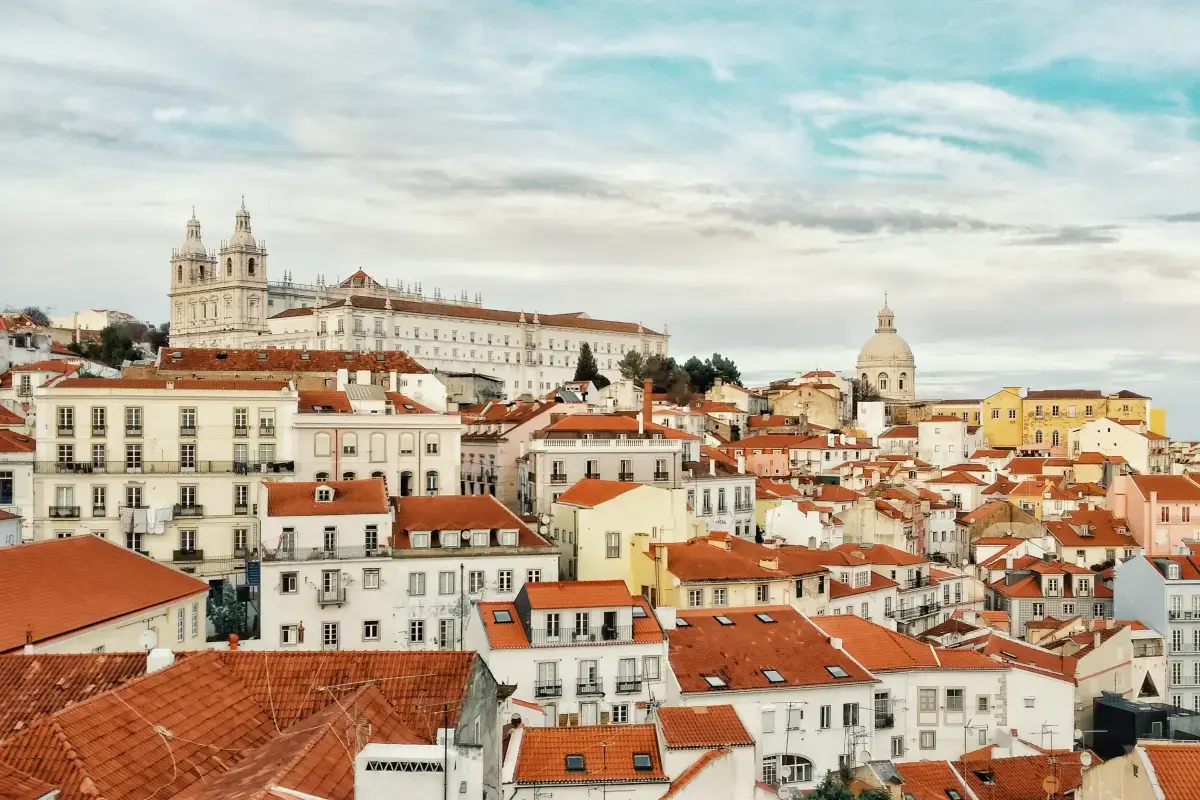
Promote
Tax & Welfare System in Portugal
The tax system in Portugal is based on the countrys Civil Code and taxes are administered by the tax authority, the Secretariat of State for Taxation. Portugal operates a largely progressive tax system, with higher rates of tax being paid by higher earners. All employed individuals resident in Portugal are subject to pay income tax, which is based on their salary and other sources of income. In addition to income tax, employers and employees also pay social security contributions. The Portuguese social welfare system is based on the principle of solidariedade, which behind the principle of “all contributing together to the social welfare of Portugal”. The system provides a range of benefits, including unemployment benefits, assistance for families and individuals, pensions, health benefits and disability protection. In addition, the system also funds grants to students, job training and allowances for those of retirement age. To access these benefits, all individuals must have a social security number and meet certain requirements.
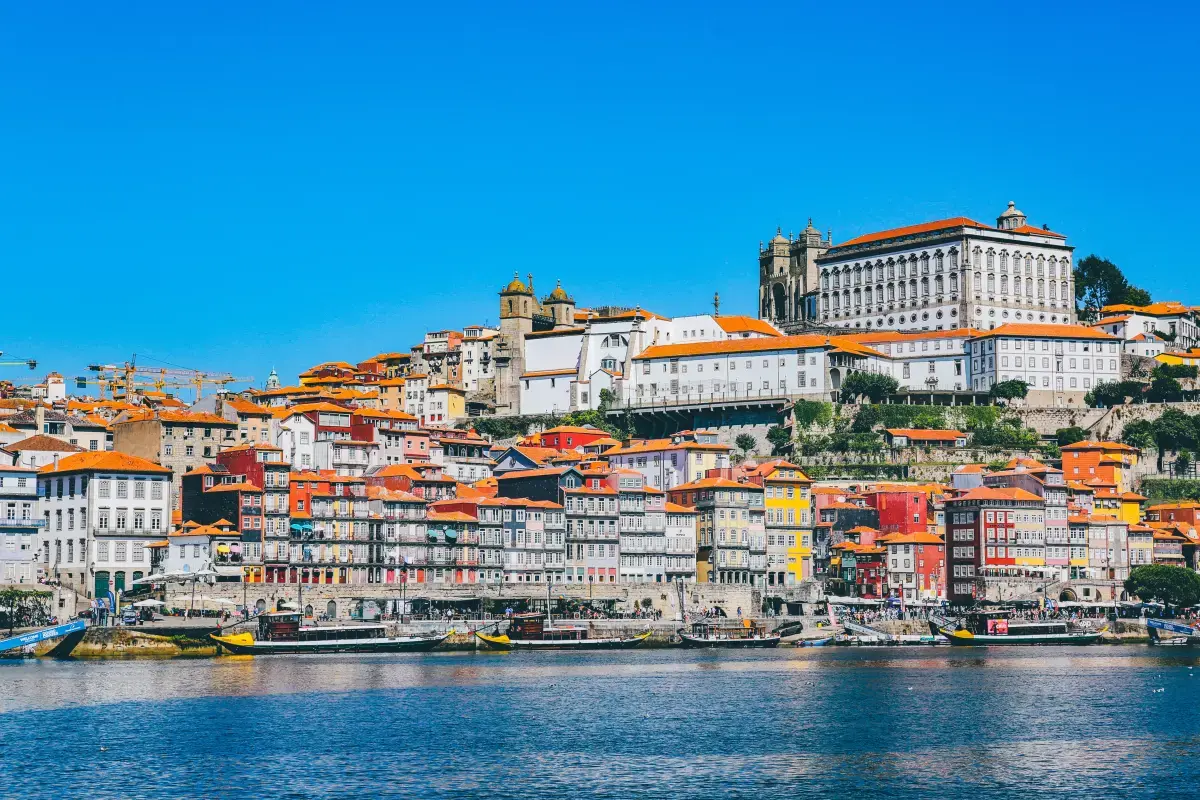
Holidays in Portugal
Portugal celebrates several national holidays throughout the year. These are days of celebration and vary in date depending on the year. Some of these holidays are celebrated on the same date each year and others move around. 1. New Year’s Day: January 1 2. Epiphany Feast: January 6 3. Carnival: Varies by year (Usually the weeks leading up to Ash Wednesday) 4. Good Friday: Varies by year (Saturday before Easter Sunday) 5. Easter Sunday: Varies by year (The first Sunday after the first full moon following the northern hemisphere Vernal equinox) 6. Labour Day: May 1 7. Portugal Day: June 10 8. Corpus Christi: Varies by year (60 days after Easter Sunday) 9. Assumption Day: August 15 10. Republic Day: October 5 11. All Saints’ Day: November 1 12. Independence Day: December 1 13. Immaculate Conception: December 8 14. Christmas Day: December 25
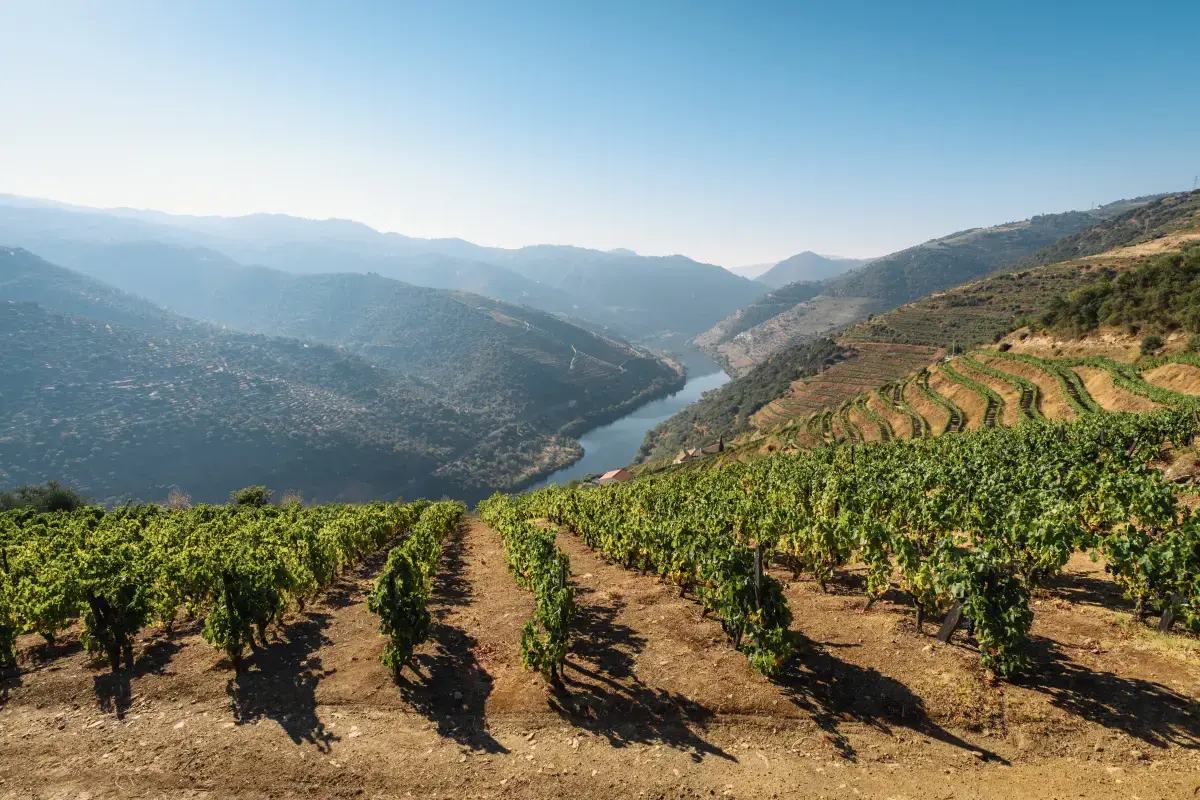
Where to Live in Portugal
The majority of jobs are found in the major cities and industrial areas of Portugal. Lisbon is the nation’s largest city and is home to a large number of businesses, industries and government entities. Much of the country’s industry is concentrated in the Lisbon metropolitan area or the Greater Lisbon region. Other major cities, such as Porto and Coimbra, also serve as hubs of economic activity in the country. The south and south-central areas of Portugal are some of the most densely populated in the country. Around 67 percent of the population lives in cities and towns along the coastline. The coastal cities of Lisbon, Setúbal and Faro in particular are home to large populations and numerous job opportunities. This is mainly due to their strategic proximity to major ports and transportation hubs. Other densely populated regions include the cities of Porto and Braga in the north and the interior city of Évora in east-central Portugal. Overall, Portugal is a country with extensive opportunities for employment and economic development. Lisbon in particular, as the nation’s largest and most prominent city, provides the bulk of job opportunities and is the center of much of the country’s economic activity.
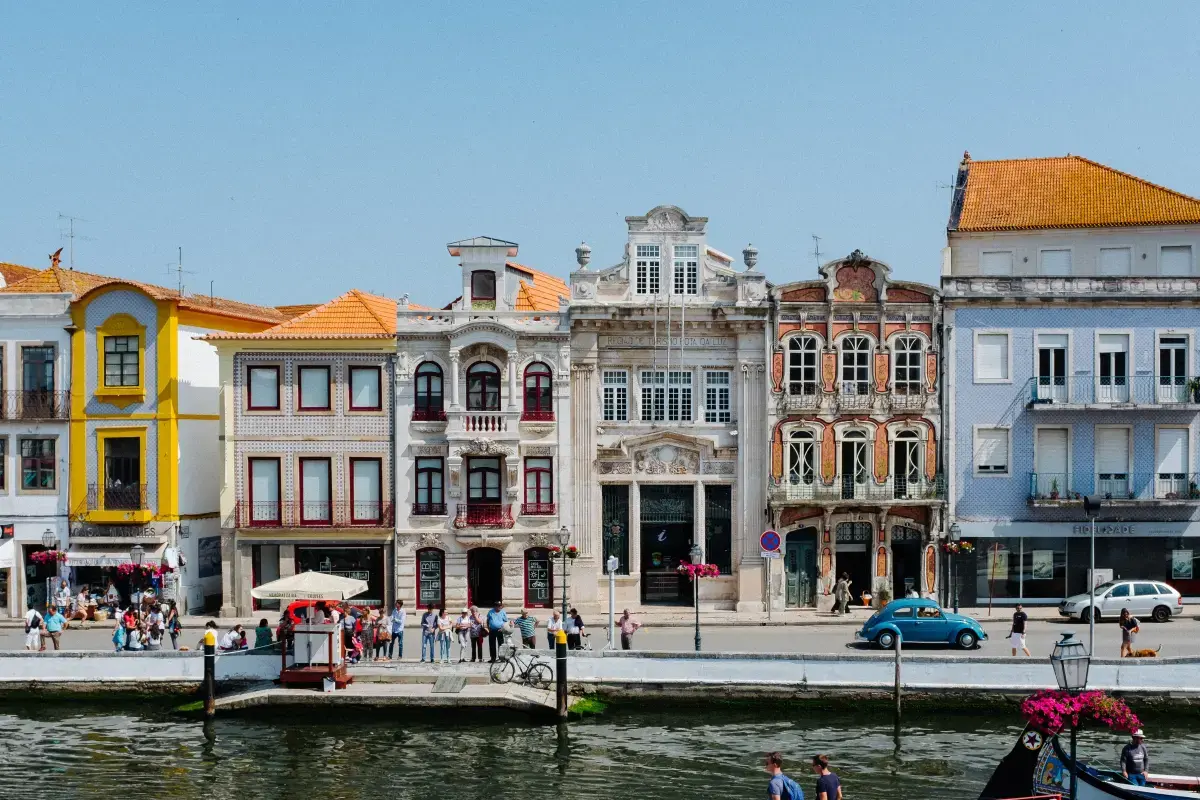
Sports & Recreation in Portugal
Popular sports and recreational activities in Portugal are outdoor or organized sports and individual recreational activities. Outdoor Sporting Activities: In Portugal, football is the most popular outdoor sport. There are approximately 11,000 registered clubs in Portugal, which is amongst the highest per capita figures in Europe. Fitness activities, like jogging, walking, mountain biking, orienteering, and running have also become popular in Portugal. Fishing, sailing, and surfing are popular activities in the coastal areas. Swimming is a popular recreational activity, whether at the beach or in the pool, and some outdoor organized sports such as volleyball and tennis are commonly practiced. Individual Recreational Activities: Portugal also has a great variety of recreational activities such as mountain and nature walks, horse riding and water parks. Nature parks across the country are a great opportunity to enjoy outdoor activities. Cycling is a popular activity in Portugal as well, particularly in the rural areas. Other popular recreational activities in Portugal include golf, birdwatching, and even hang gliding. The country is home to several botanical gardens and zoos, so spending time in these natural paradises can be an excellent pastime. Portugal has some of the best spas and wellness centres in Europe, making spa holidays a popular choice. Outdoor cinemas, a number of theme parks and other aquatic activities like scuba diving are also available.

Cost of Living & Housing in Portugal
The cost of living and housing in Portugal is fairly affordable compared to other parts of Europe. The overall cost of living including food, transportation, entertainment, and utilities tends to be slightly lower than in other countries. The average rent for a one-bedroom apartment in the city center of Portugal is around €530, which is about 40% less than that of many cities in other European countries. The cost of utilities in Portugal is also comparatively lower. For example, an average monthly utility bill in Portugal is around €85, whereas the same would cost around €110 in other parts of Europe. Additionally, for those interested in buying a home, prices are also relatively low. The average cost of a three-bedroom house in Portugal is around €140,000, nearly half that of many other European countries.
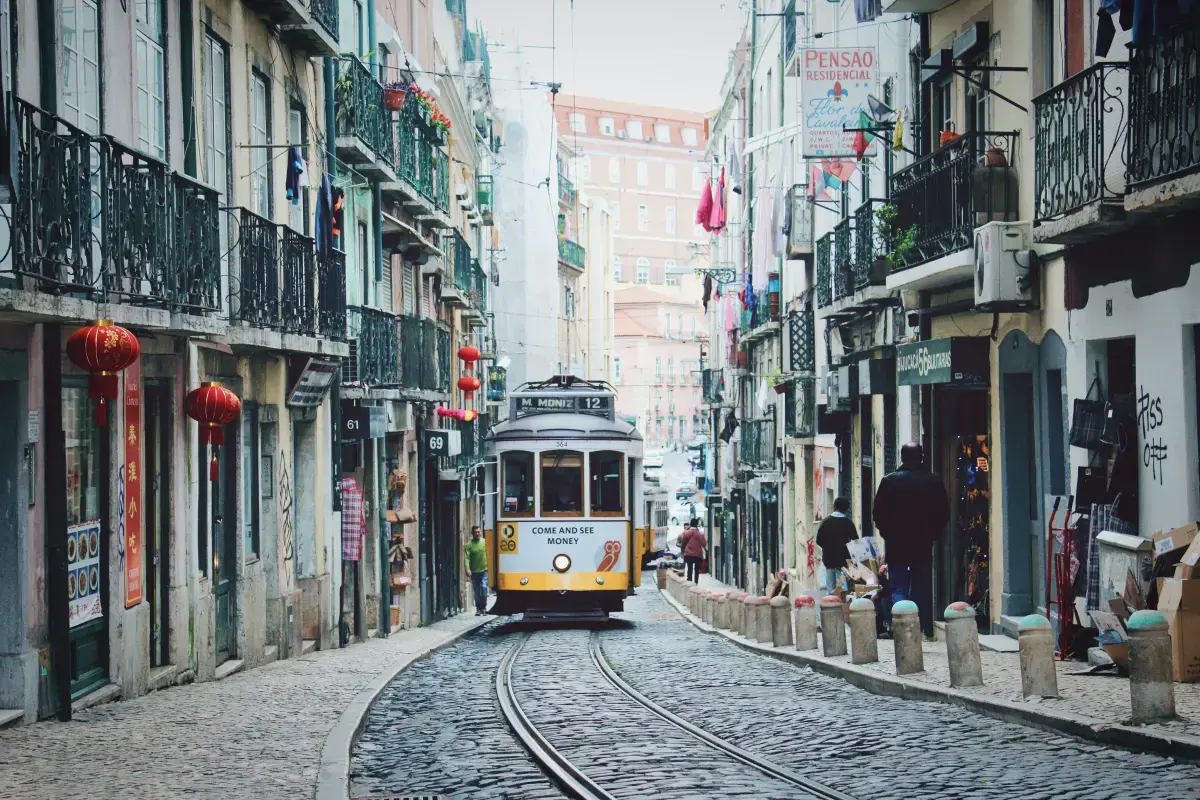
Finding a Job in Portugal from Overseas as a Foreigner?
Use our Job hunting & job seeking guide to help your job searching easier.

The Best Rated Top 20 Recruitment Agencies in Portugal
When searching for a Job from Overseas, reaching out to established Recruitment Agencies can help in your Job Search in Portugal

What are the Best job boards in Portugal
Jobseekers searching for jobs in Portugal find the below job portals in in Portugal as the best job websites for finding employment in in Portugal
Best International Removals Companies to/from Portugal
When the move to Portugal gets closer, finding local and international removals companies that suit your requirements are critical. Find a list of the best companies Near You.

Expat info about living in
Don't just take our word for it.
Use the Best Forums in Portugal to obtain all the independent advise about moving, living & working in Portugal

Immigration Advice and Visa InformationPortuguese
Need assistance with obtaining the correct Visas and Work Permits in Portugal.
- Get expert advice to make the move to Portugal as easy as possible

Find Trusted Local Home Services
When you arrive, understanding the Best Local Services to help with your odd jobs and tasks around the home is essential.

Best Areas to Live in Portugal
Popular towns, cities and regions that are proving popular with migrants moving to Portugal
Study and Higher Education in Portugal
Search our list of all universities in Portugal to help your reach your educational goals.
- Find the Best University in Portugal that suits your needs
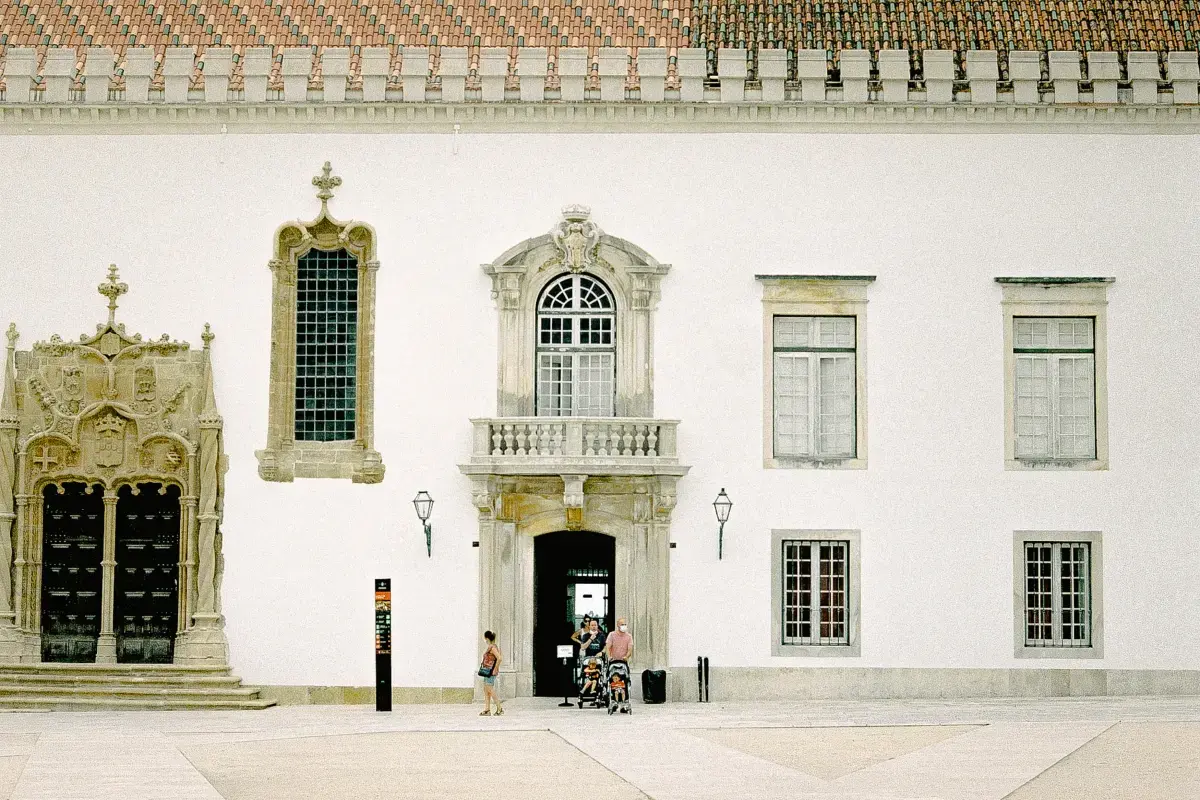
Featured Locations
Frequently Asked Questions
- Construction
- Business Analysis
- Web & App Development
- Animation
- Nursing
- Teaching
- Engineering
- Marketing
- Plumbing
- Carpentry
- Software Engineer
- Data Analyst
- Hospitality Staff
- Builders
- Full-time
- Part-time
- Permanent
- Freelance
- Gig Jobs
- Contract
- Weekend work
- Out of Hours
- Night shift
- Casual
- Temporary
- Remote
- Work From Home
- Work From Anywhere
- Telecommuting
- Flexible
See here for more Help & Support questions
